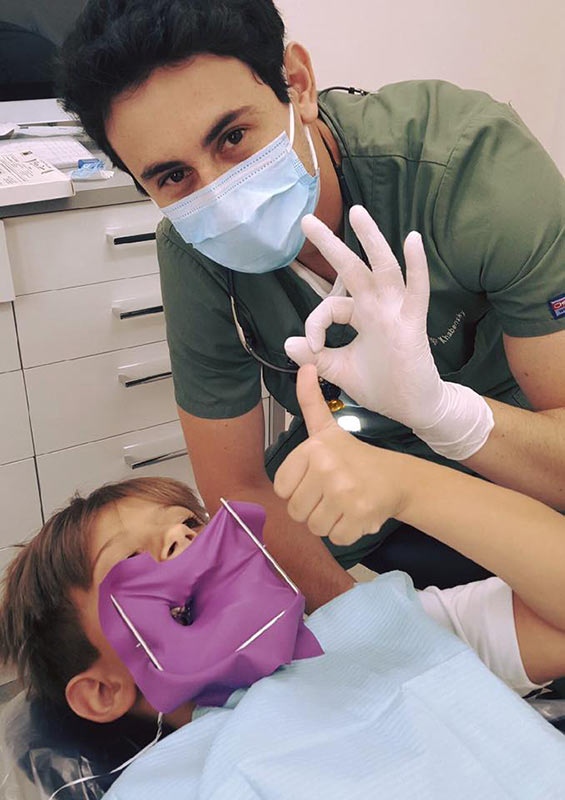Explore the Variety Of Dental Issues Dentists Generally Manage
Dentists are entrusted with dealing with a broad spectrum of oral issues, each calling for specialized understanding and techniques. From the common problem of dental caries caused by bacterial activity to the a lot more perilous progression of periodontal disease, oral experts have to be proficient at very early detection and treatment. Tooth level of sensitivity, commonly resulting from worn enamel, adds another layer of complexity, while the very early identification of oral cancer can be life-saving. Furthermore, misaligned attacks require tailored treatment plans to improve both capability and looks. What details techniques do dental practitioners use to manage these varied difficulties properly?
Cavities and Dental Cavity
While preserving ideal oral health is important, tooth cavities and dental cavity continue to be common concerns that dental experts frequently deal with. Cavities, also understood as tooth decays, are caused by the demineralization of tooth enamel due to acid-producing bacteria in the mouth. These microorganisms grow on sugars and starches from food and drinks, creating a cycle of acid strikes that gradually deteriorate the enamel and dentin layers of teeth. If left untreated, dental caries can result in substantial oral problems, including infections and missing teeth.
To diagnose tooth cavities and tooth degeneration, dentists utilize a mix of aesthetic examinations, oral X-rays, and sometimes laser fluorescence gadgets. For more innovative decay, a dental professional may require to remove the jeopardized tissue and restore the tooth with dental fillings made from products such as composite resin, amalgam, or porcelain.
Safety nets are paramount in combating tooth cavities and dental caries. Routine oral exams, proper brushing and flossing strategies, and a well balanced diet regimen reduced in sweet foods and drinks are fundamental practices that support oral wellness and decrease the danger of cavities.
Gum Tissue Illness

This creates the periodontals to draw away from the teeth, creating pockets that come to be infected. As the body's immune system deals with the microorganisms, the bone and connective tissue that hold teeth in place are broken down.
Dental professionals identify gum tissue illness with medical evaluation and periodontal penetrating to determine pocket midsts around the teeth. Treatment may include scaling and origin planing to eliminate tartar and germs from tooth surfaces and beneath the gum tissues.
Tooth Level Of Sensitivity
Beyond gum disease, another usual dental concern that people frequently experience is tooth level of sensitivity. Characterized by a sharp, short-term discomfort in response to stimuli such as hot, cool, pleasant, or acidic foods and drinks, tooth sensitivity can substantially influence an individual's high quality of life.
In addition, dental procedures, fractured teeth, and gum read disease can expose the dentin. To minimize tooth level of sensitivity, dentists may advise utilizing tooth paste formulated for delicate teeth, fluoride treatments to enhance enamel, or dental bonding to cover revealed dentin.
Eventually, attending to tooth sensitivity calls for a detailed method blog that consists of both safety nets and targeted therapies to ease pain and shield the dental frameworks.
Dental Cancer Cells
Dental cancer, a possibly serious and serious condition, commonly flies under the radar in regular oral treatment conversations. This kind of cancer can influence any type of part of the mouth, consisting of the lips, tongue, cheeks, floor of the mouth, soft and hard tastes, sinuses, and throat. Early detection is essential for successful treatment, yet several cases are diagnosed at sophisticated phases as a result of subtle preliminary symptoms.
Misaligned Bites
Misaligned bites, likewise referred to as malocclusions, are an usual dental issue that can dramatically affect both oral health and total lifestyle - dentists eugene. These problems occur when the upper and reduced teeth do not straighten appropriately, leading to problems in attacking, chewing, and even talking. Malocclusions can be identified into numerous kinds, including overbites, underbites, crossbites, and open attacks, each offering unique obstacles that need customized therapy strategies
The reasons for misaligned attacks vary and can consist of hereditary factors, early loss of baby teeth, thumb sucking, and injuries to the jaw. Signs and symptoms usually consist of pain or discomfort in the jaw, frequent biting of the internal cheeks, and a raised risk of tooth degeneration and periodontal condition because of trouble in maintaining oral health.
Orthodontists and dental professionals utilize a series of interventions to attend to misaligned bites, from conventional dental braces and clear aligners to extra innovative surgeries in serious instances. Early medical diagnosis and therapy are crucial to prevent difficulties such as temporomandibular joint (TMJ) problems and uncommon endure teeth. With extensive analysis and customized therapy strategies, oral professionals play a pivotal function in fixing malocclusions and boosting individuals' dental feature and visual appeals.
Verdict
Tooth cavities and tooth decay result from bacterial task that endangers tooth enamel, while periodontal illness can intensify from gingivitis to extreme gum problems. Tooth level of sensitivity entails pain from thermal stimuli, necessitating details treatment.
To identify tooth cavities and tooth degeneration, dental professionals utilize a mix of aesthetic examinations, oral X-rays, and often laser fluorescence gadgets.Beyond periodontal condition, an additional usual oral problem that patients frequently come across is tooth level of sensitivity. Furthermore, dental treatments, fractured teeth, and periodontal illness can subject the dentin. To reduce tooth sensitivity, dental practitioners might advise making use of toothpaste formulated for delicate teeth, fluoride therapies to reinforce enamel, or dental bonding to cover revealed dentin. Cavities and tooth degeneration result from bacterial activity that jeopardizes tooth enamel, while periodontal condition can intensify from gingivitis to extreme gum problems.